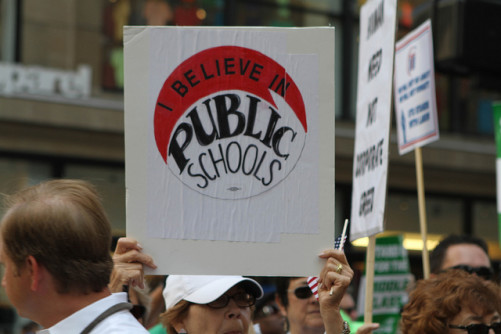
March 15, 2016; National Public Radio
At a recent Democratic Town Hall hosted by CNN, Bernie Sanders said, “I believe in public education and I believe in public charter schools. I do not believe in privately controlled charter schools.” The difficulty with that statement, according to National Public Radio (NPR), is that all charter schools are public, with varying levels of private control.
At the most basic level, it should be no surprise that charter schools are public. If they weren’t public, they would be private schools just like the many parochial and private schools present in the U.S. for centuries.
Sign up for our free newsletters
Subscribe to NPQ's newsletters to have our top stories delivered directly to your inbox.
By signing up, you agree to our privacy policy and terms of use, and to receive messages from NPQ and our partners.
Charter schools were developed as a way to provide educational alternatives within the public school system. The design goals included involving parents and teachers more meaningfully in their schools and allowing those schools to adapt to the unique learning and cultural needs of their students. Many public school districts offered their charter schools waivers from some rules and policies believed to increase educational costs and interfere with effective learning.
The educational alternatives provided by charter schools look different from community to community and state to state, with varying levels of autonomy and site-based governance authority. In addition, there are for-profit companies with a business model to organize and manage a small percentage of charter schools for public school districts. One key trend is the slowing growth of new “independent” charter schools and the growth of large nonprofit charter management organizations (CMOs) and education management organizations (EMOs). Ironically, the site-based management goals of the charter school pioneers is at odds with regional or national nonprofits setting organization-wide policies and goals for “their” charter schools.
Charter schools are an increasingly important education issue, especially in some of the nation’s urban centers. NPR reports that 2.25 million children in the U.S. attend about 6,500 charter schools. Over one-third of children in Detroit and Washington, D.C., are served by charter schools, and 90 percent of New Orleans students attend charter schools.
Developing good education policy will need to start with developing understanding and good definitions for the variety of charter school education models currently in use.—Michael Wyland











